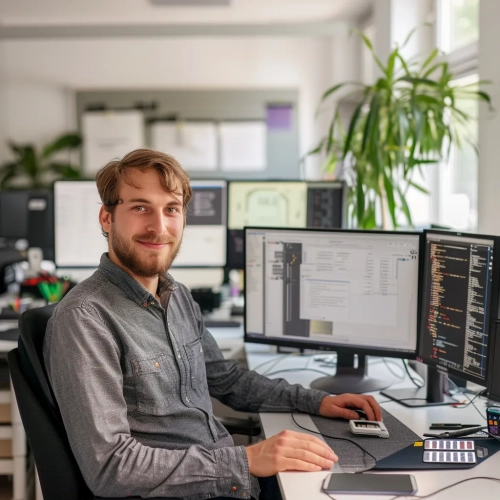


With over 4.5 billion people worldwide using smartphones by 2023, this profession has become indispensable. Mobile developers create applications for smartphones and tablets, as well as versions of websites adapted to mobile interfaces. As specialists in mobile development, they master languages such as Java for Android and Swift for iOS, enabling them to work in a variety of fields (video games, geolocation, payment platforms).
They are involved in all phases of an application's lifecycle: defining technical requirements, developing functionalities, testing and correcting any bugs.
This job belongs to the field of web development.







Mobile developers specialising in Android are proficient in the Java and Kotlin programming languages, which are the pillars of development on this platform. They use the Android SDK and tools such as Android Studio or Eclipse to design, code and test applications. He has knowledge of the JDK (Java Development Kit) for development in Java, and the NDK (Native Development Kit) to code in C or C++ for certain needs.
For iOS development, a mobile developer masters the Swift and Objective-C languages, which are at the heart of iPhone and iPad applications. They use the Xcode IDE, which is the main development platform for iOS, to write, test and deploy their applications. He is proficient in the Cocoa Touch, Foundation, Cordova and Core Motion frameworks. He also uses software engineering tools such as JUnit and SVN to manage code and facilitate teamwork.
You can become a mobile developer with a 2-year higher education qualification. This could be a BTS in computing, a professional degree in computing or communication techniques (bac +3), an engineering degree or a master's degree in computing (bac +5).
With experience, mobile developers can become Lead Mobile Developers, supervising a team of developers. They can also specialise further by moving into mobile architecture.